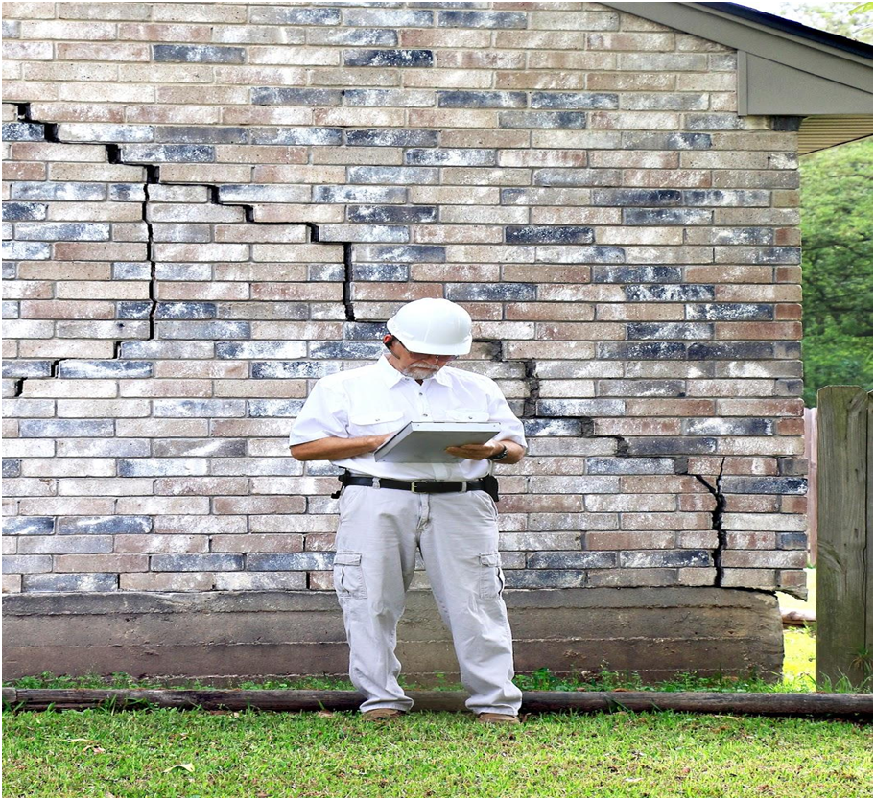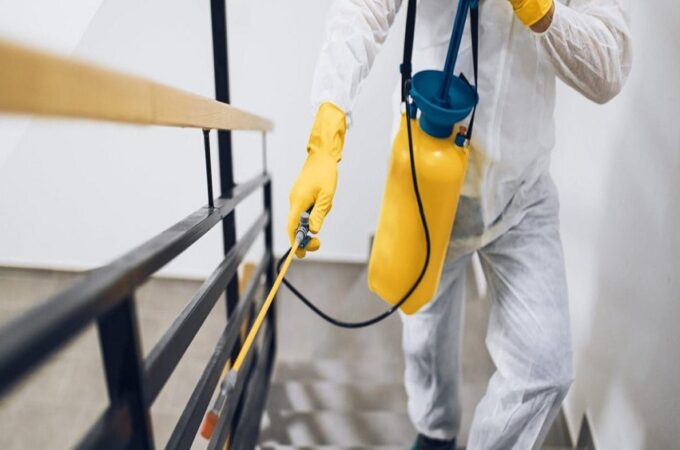
What Is Involved in A Foundation Inspection?
What Is a Foundation Inspection?
A foundation inspection is a thorough examination of the foundation of a building or structure.This is typically carried out by a trained professional, such as a foundation repair contractor or structural engineer.
During the inspection, the inspector will look for any signs of damage or deterioration to the foundation. They may also check for issues such as water damage, mold, or pest infestations. A foundation inspection may include any part of the home, including the attic, closets, floors, ceilings, doors, windows, and more. This is because foundation problems can show up throughout the home.
A foundation inspection is an important part of maintaining the safety and structural integrity of a building. If any issues are found during the inspection, they can be addressed before they become more serious and more expensive to repair.
For several reasons, addressing foundation problems in Omaha through thorough inspection is crucial. The foundation serves as the structural backbone of a building, ensuring stability and preventing structural deterioration. Omaha’s climate, characterized by freezing winters and fluctuating soil conditions, can contribute to foundation issues such as settling, cracking, or shifting. Identifying these problems early through inspections allows for timely intervention, preventing further damage and potentially costly repairs.
Moreover, neglected foundation issues can compromise the safety of the entire structure, posing risks to occupants and diminishing property value. Therefore, proactive foundation inspections in Omaha play a pivotal role in maintaining the integrity of buildings, safeguarding against potential hazards, and preserving the long-term value of real estate investments.
In some cases, local building codes or regulations may require a foundation inspection, particularly if a building is being sold or renovated. In other cases, it may be a good idea for homeowners or property owners to inspect their foundations periodically as a preventative measure.
Signs You May Need a Foundation Inspection
Sticking Windows and Doors
As the foundation sinks and pressure is put on the house’s frame, doors and windows won’t open and close as easily as they should.
Gaps Around Windows and Doors
In addition to the windows and doors sticking when you open and close them, you may see gaps forming on the sides of the doors and windows. This is because the frame is out of square.
Chimney Leaning
You may see the chimney leaning or it could even separate from the home. Cracks in the bricks may also be a sign there’s either a problem with the house’s foundation or the foundation under the chimney itself.
Water Intrusion
Water entering a basement or crawl space is another bad sign. The foundation walls will be under significant pressure if poor drainage allows hydrostatic pressure to build up and push against the foundation walls. Hydrostatic pressure is strong enough to push water through invisible cracks in a foundation wall.
Even if there’s no standing water in the basement or crawl space, you may see evidence of moisture intrusion. This could be in the form of rusting appliances, high humidity, mold, rotting wood, or efflorescence.
Uneven or Sinking Floors
When the foundation settles into the ground unevenly, it can cause the floors to become uneven. You may not be able to see this with your eye but you can often feel it when you walk across the floor.
Separating Walls
Since the frame of the home is under a considerable amount of pressure when the foundation shifts, it can cause the walls to separate from the floor and ceiling. You may also see walls separating from each other where they come together in the corner.
Structural Cracks
Structural cracks are those that affect your home’s structural integrity. Structural cracks are usually larger than non-structural cracks.They’re often horizontal, diagonal, or in a stair step pattern, and may originate at windows, doors, or at the corner of the foundation.
Bowed or Cracked Basement Walls
Hydrostatic pressure may cause the basement walls to bow inward or even crack. This can weaken the foundation further, leading to the possibility of foundation failure. Cracks in a basement wall can also provide easy access for water to enter.
Mold
High humidity can cause mold to form in a basement or crawl space. You may see it as stains on the walls and in other areas. Some people also complain of an old house smell, which are volatile organic compounds from the breakdown of mold and bacteria.
Higher Energy Bills
Higher energy bills are not always the fault of the power company. Sometimes, higher humidity levels can result in higher energy bills because moist air is harder to cool and heat.The stack effect occurs when warmer air rises to the ceiling and escapes through the roof. The vacuum left behind causes air to be pulled out of the basement or crawl space. As much as 50% of the air you breathe in the home originates in the crawl space or basement. If there is poor air quality in the basement or crawlspace, it will now be a problem in the home’s living area. Many people suffer from increased respiratory issues, more frequent colds, or just additional sniffles as a result of poor air quality in the home.
Having one of these problems does not necessarily mean that your foundation is failing but if the problem is progressive or if you have multiple issues, it’s time to get the professionals involved.
Should You Inspect Your Own Foundation?
You can use many of the possible issues we addressed earlier in this article to identify potential problems with the foundation. Just like a self-health check is important to ensure that your health is in order, checking the foundation will also show you any indications that the foundation may be experiencing problems.
However, a DIY home foundation inspection is never going to provide the in-depth look that an experienced foundation repair contractor or structural engineer would provide during a professional foundation inspection. Even if you aren’t expecting problems, having a foundation inspection on a regular basis can provide you peace of mind.
If problems occur with the foundation, they will be seen during a professional foundation inspection. Since you may be able to catch those problems early, they will be easier and less expensive to repair compared to what you may experience if you wait to address the problem at a later time.
The bottom line is, that it is always a good idea to keep an eye on your own foundation but don’t allow it to get in the way of having a professional foundation inspection done on a periodic basis.
The Cost of Having a Professional Foundation Inspection
The cost is one of the biggest issues holding people back from having their foundation inspected. They may think that having an unnecessary inspection and the cost associated with it would just not fit into their budget. The truth is, that most foundation inspections are provided free of charge by professional foundation contractors. Most provide free foundation inspection to anyone who suspects their home might have a foundation issue.
When looking for a company that would provide such a free inspection, it’s important to go with someone who is reputable and well-known in the community. You want somebody who is going to provide you with an honest evaluation of your foundation and not a report that would frighten you into having any unnecessary work done. In addition, most free foundation inspections do not require you to use the contractor doing the inspection for the work.
It is also important to consider that not having a foundation inspection can cost you plenty. Foundation problems only work in one direction. In other words, they get worse over time. If you don’t have the problem corrected now, you will pay more to have it corrected later. A foundation inspection is an important part of keeping your home safe and sound.
Author:
Timothy Roberts
I spent 20+ years working in construction and maintenance before retiring to the keyboard to do writing full-time. I enjoy spending time with my grandkids and traveling when I’m not writing construction articles.





